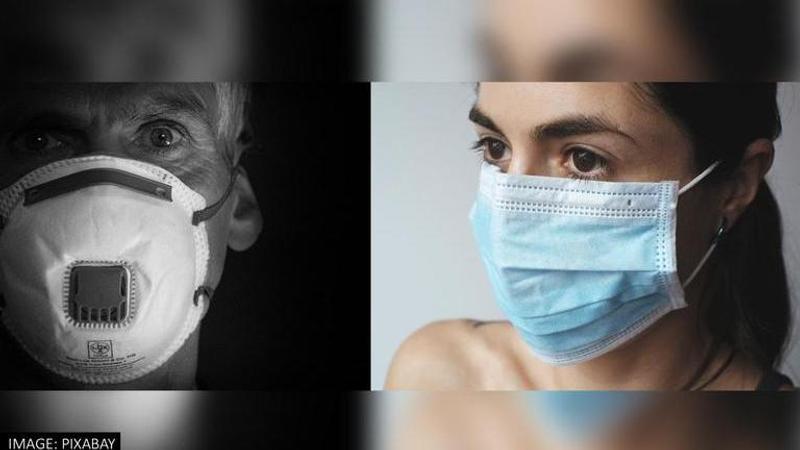Published 13:47 IST, January 24th 2022
Masks vs Respirators: Which is more protective against COVID-19? Here's the answer
With the emergence of a new COVID variant last year, health experts are now suggesting upgrading the shield from the face mask to N95 respirators

Amid a sudden surge in the COVID-19 cases mainly driven by the Omicron variant, people are now taking extra precautions to prevent the highly-infectious virus from infiltrating their bodies. Since the start of the pandemic, scientists have been advocating using face masks to prevent the virus. However, with the emergence of a new COVID variant last year, health experts are now suggesting upgrading the shield from face masks to respirators. Several European countries, Austria made it mandatory to use respirators in public places. Earlier last year, the US Centers for Disease Control and Prevention (CDC) also recommended people wear respirators to avoid the latest variant. So, which is better-- a face mask or a respirator?
Comparing Surgical Masks and Surgical N95 Respirators
According to a study conducted by the CDC on thousands of health care staff, they found strong evidence that respirators are more effective than source control and personal protective masks. As per CDC, a surgical mask is a loose-fitting, disposable device that creates a physical barrier between the mouth and nose of the wearer and potential contaminants in the immediate environment. They may come with or without a face shield. While an N95 respirator is a respiratory protective device designed to achieve a very close facial fit and very efficient filtration of airborne particles. It is commonly used in healthcare settings and is a subset of N95 Filtering Facepiece Respirators (FFRs), often referred to as N95s.
Which provides better protection against COVID-19?
The health experts said if the surgical masks are worn properly, it will help in preventing large-particle droplets, splashes, sprays, or splatter that may contain germs (viruses and bacteria), from reaching the mouth and nose. Surgical masks may also help reduce exposure of your saliva and respiratory secretions to others. While the CDC said respirators are specifically, single-use, disposable respiratory protective devices used and worn by healthcare personnel during procedures to protect both the patient and healthcare personnel from the transfer of microorganisms, body fluids, and particulate material. The respirator contains coating technologies unrelated to filtration (e.g., to reduce and or kill microorganisms).
The CDC labelled the respirator as "single-use," disposable devices. "If your respirator is damaged or soiled, or if breathing becomes difficult, you should remove the respirator, discard it properly, and replace it with a new one," said the CDC official. Though it is more effective in preventing the COVID virus, the health experts warn people with chronic respiratory, cardiac, or other medical conditions that make breathing difficult should check with their health care provider before using an N95 respirator. According to health experts, the N95 respirator can make it more difficult for the wearer to breathe, if he/she is suffering from respiratory disease.
Image: Pixabay
Updated 13:47 IST, January 24th 2022



